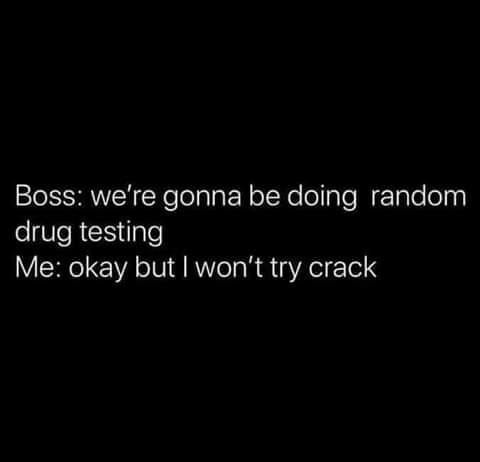Critical and Logical Thinking: Tools for Real Life
This is a subtitle for your new post

Introduction
Modern life is loud. Every screen screams for attention. Headlines shout half-truths, politicians spin their narratives, advertisers craft emotional hooks, and influencers pretend their opinions are gospel. In the middle of this chaos, people are supposed to make rational decisions about money, health, relationships, work, and politics.
If you don’t have the tools of critical and logical thinking, you get swept away. You’re easy prey for manipulation, bias, and even your own impulses. That’s why developing these skills isn’t just for philosophers or college students. It’s for anyone who wants to live wisely, avoid costly mistakes, and build a life on something sturdier than emotional whims.
We’ve all been told, “Trust your gut.” It sounds bold. It sounds confident. But in most of life’s big decisions, it’s a terrible idea. Gut feelings are capricious—fluctuating with mood, hunger, stress, and bias. What feels like “intuition” is often just the subconscious recycling of past experiences, fears, or cultural scripts.
The better path is slower, harder, but infinitely more reliable: critical thinking and logical reasoning.
What Is Critical Thinking?
Critical thinking is not cynicism. It’s not tearing down every argument or rejecting everything you hear. It’s the disciplined habit of asking better questions:
- What is the evidence?
- Who benefits if I believe this?
- What assumptions are being made?
- What alternative explanations exist?
- Am I reacting to information or just to emotion?
Critical thinking is about pausing long enough to analyze, compare, and verify before you act. It’s the antidote to manipulation and the buffer against error.
The Role of Logic
If critical thinking asks the right questions, logic makes sure the answers line up.
Logic is the structure of sound reasoning. It forces us to test whether our conclusions actually follow from our premises. Without logic, thinking becomes mushy—contradictions, emotions, and biases slip through unnoticed.
Take one of the oldest fallacies: post hoc ergo propter hoc (“after this, therefore because of this”). Just because one event follows another doesn’t mean one caused the other. Politicians exploit this constantly: “Crime dropped after our new program—therefore, our program solved crime.” Maybe. Or maybe other factors did the heavy lifting. Logic demands proof, not coincidence.
Logic isn’t flashy, but it’s clarity in a fog.
The Seduction and Failure of Gut Feelings
Now let’s deal directly with the myth.
“Trust your gut” has been sold as wisdom. It isn’t. Gut instincts are built for fast survival decisions, not for the complex realities of modern life.
- When they help: If you’re driving and a car swerves toward you, your gut reacts faster than thought. In sports, soldiers in combat, or firefighters in emergencies, trained instincts can save lives.
- When they fail: Choosing investments, voting for leaders, diagnosing health issues, or deciding whether a partner is trustworthy. These aren’t emergencies. They’re nuanced. Your gut doesn’t know how to calculate compound interest or parse policy details.
The danger of gut feelings is that they feel confident even when they’re wrong. A scammer “seems trustworthy.” A politician “sounds authentic.” A stock “feels hot.” These emotions trick us into mistaking feelings for facts.
Critical and logical thinking cut through that noise. They force our impulses to answer: Where’s the evidence? What are the risks? If I’m wrong, what happens?
Money: Gut vs. Logic
Money exposes the flaw of gut instincts more than almost anything.
- Spending: Advertising preys on impulse—fear of missing out, envy, or the thrill of indulgence. Logic asks: Do I need this? Will it matter a week from now?
- Investing: Gut reactions lead people to chase fads (dot-coms in the ’90s, crypto in 2021) or panic-sell when markets dip. Logical investors diversify, stick to fundamentals, and think long-term.
- Debt: The gut whispers, “I deserve this now.” Logic asks, What’s the interest rate, and how many hours of my life am I trading away to pay this back?
The 2008 financial crisis is a perfect case study. Banks trusted “gut instincts” about housing always going up, ignored red flags, and packaged garbage loans as gold. Millions paid the price. A little more critical thinking, a little less blind faith in trends, could have prevented disaster.
Politics: Emotional Manipulation vs. Rational Voters
Politics is theater designed to bypass critical thinking. Slogans and soundbites go straight for the gut:
- “If you don’t vote for us, democracy dies.”
- “They’re coming for your way of life.”
- “This candidate is literally Hitler.”
All of these are designed to ignite fear or tribal loyalty. They’re not logical arguments.
A critical voter looks past the fireworks:
- What has this candidate actually accomplished?
- What do the numbers show about crime, jobs, or inflation?
- Who gains money or power if I believe this story?
Without logical, evidence-based analysis, democracy devolves into mob emotion. That’s how nations drift into chaos—when voters stop thinking and start feeling their way through ballots.
Relationships: Beyond Instinct
In relationships, gut feelings can spark attraction, but they’re terrible at predicting stability.
- Dating: Instinct says, “This person is perfect” after two dates. Critical thought checks whether values, goals, and lifestyles align.
- Conflict: Gut reactions explode over perceived slights. Logical thought asks: What did they actually say? Am I assuming intent?
- Commitment: Emotions want constant passion. Logic understands that stability, trust, and shared purpose matter more than butterflies.
Healthy love isn’t just chemistry—it’s compatibility. Without critical and logical thinking, relationships collapse under the weight of untested feelings.
Work: The Rational Edge
In the workplace, critical thinking separates professionals from amateurs.
- Hiring: Gut feelings about a “good fit” reinforce bias. Structured, evidence-based interviews produce better hires.
- Problem-Solving: Emotion says, “Jump at the first solution.” Logic tests alternatives, weighs costs, and projects outcomes.
- Leadership: Gut says, “Do it my way.” Logic says, “What does the data show, and how do I bring the team along?”
Look at Enron. The gut instinct was greed disguised as genius. Critical thinking—asking “how are they really making money?”—was ignored. The collapse remains a warning: when reason is suspended, corruption fills the gap.
Case Study: Media and Misinformation
Social media is the modern colosseum of gut manipulation. Outrage spreads faster than truth. Headlines are designed to spark anger or fear before logic kicks in.
Critical thinkers slow down:
- They read beyond the headline.
- They check the source.
- They ask who benefits from the narrative.
In 2016 and again in 2020, misinformation campaigns targeted voters’ guts—emotionally charged memes, half-truths, and lies designed to bypass critical analysis. Millions fell for them. The cost wasn’t just bad information—it was national division.
Case Study: Medicine and Health
Gut feelings are especially dangerous in health decisions.
- “I feel fine, so I must be healthy.” Heart disease says otherwise.
- “This herbal supplement feels safer than medicine.” Logic asks for controlled studies, not anecdotes.
- “My neighbor’s story convinces me.” Science runs on data, not gut-level stories.
During the COVID-19 pandemic, misinformation flourished because people trusted feelings over facts. Logical analysis—what do peer-reviewed studies say, what are the risks vs. benefits—was drowned out. The result: unnecessary deaths.
Building a Life of Critical and Logical Thinking
Critical and logical thinking are skills. They improve with practice.
- Slow down decisions. If it’s not urgent, buy time. Gut feelings hate silence.
- Question assumptions. Don’t just ask what you know—ask what you might be wrong about.
- Seek contrary evidence. If you can’t argue against yourself, you haven’t really thought it through.
- Use structured methods. Logic trees, pro-con lists, or even formal fallacy checklists help strip emotion from decisions.
- Practice humility. The logical mind admits it might be wrong and adjusts. The gut digs in.
Why This Matters
Because without critical and logical thinking, life becomes roulette.
- In money: you get scammed.
- In politics: you get manipulated.
- In relationships: you get blindsided.
- In work: you get stuck.
- In health: you get hurt.
Gut instincts may feel powerful, but they are unreliable. Critical thinking and logic don’t eliminate mistakes, but they cut them down and make you stronger with each one.
The world is full of people trying to sell you something—products, ideas, fear. If you can think critically and reason logically, you become harder to fool, harder to use, and harder to break.
References
- Kahneman, D. (2011). Thinking, Fast and Slow. Farrar, Straus and Giroux.
- Facione, P. A. (2015). Critical Thinking: What It Is and Why It Counts. Insight Assessment.
- Stanovich, K. E., & West, R. F. (2000). “Individual differences in reasoning.” Psychological Bulletin, 126(1), 23–53.
- Gigerenzer, G. (2007). Gut Feelings: The Intelligence of the Unconscious. Penguin.
- Cialdini, R. (2021). Influence: The Psychology of Persuasion. Harper Business.
- Taleb, N. N. (2007). The Black Swan: The Impact of the Highly Improbable. Random House.
- Tversky, A., & Kahneman, D. (1974). “Judgment under uncertainty: Heuristics and biases.” Science, 185(4157), 1124–1131.
Disclaimer:
The views expressed in this post are opinions of the author for educational and commentary purposes only. They are not statements of fact about any individual or organization, and should not be construed as legal, medical, or financial advice. References to public figures and institutions are based on publicly available sources cited in the article. Any resemblance beyond these references is coincidental.











